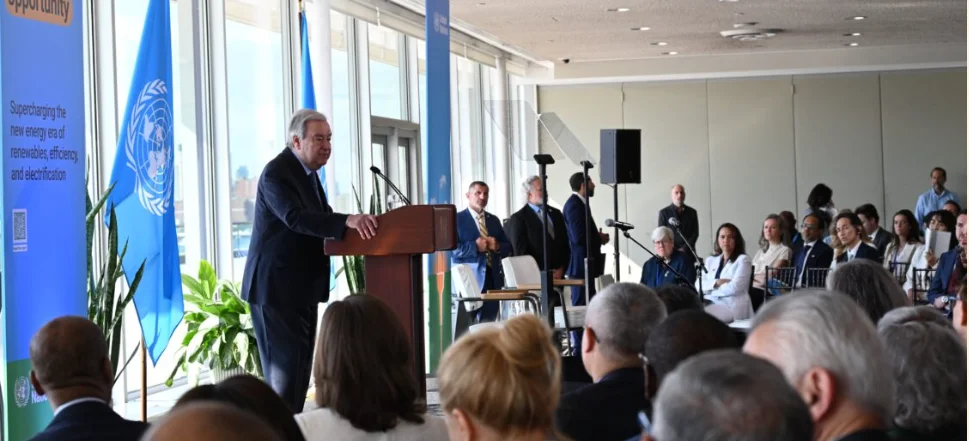UN Warns Big Tech: Power AI with Clean Energy by 2030 or Risk Climate Catastrophe
The United Nations has issued a bold call to action to global technology companies: power your AI infrastructure with 100% renewable energy by 2030, or risk derailing the world’s climate targets.
UN Secretary-General António Guterres made the declaration during the launch of a new report titled “Seizing the Moment of Opportunity”, co-developed with the International Renewable Energy Agency (IRENA). The report outlines the critical steps required to accelerate the global clean energy transition — and positions AI as both an opportunity and a major risk.
“AI can boost energy efficiency, innovation, and resilience, but it is also energy hungry. This is not sustainable, unless we make it so,” said Guterres.
AI Driving Explosive Growth in Energy Demand
The UN report highlights a startling reality: AI and cloud computing are supercharging global energy consumption.
- A single large AI data centre now consumes as much electricity as 100,000 homes.
- The next generation of mega data centres could use up to 20x more power.
- If left unchecked, data centres may consume as much electricity as Japan by 2030.
The environmental footprint also includes heavy water use for cooling, raising concerns around responsible resource management in drought-prone regions.
Clean Energy Progress is Uneven — and Risky
While the renewable energy revolution is accelerating in countries like the U.S., China, and across Europe, developing nations are struggling to keep up.
Key Insights from the UN Report:
- Africa received just 1.5% of global renewable energy investment in 2024.
- 85% of the world’s population without electricity access lives in Africa.
- Since the Paris Agreement began in 2016, less than 20% of clean energy funding has gone to emerging economies outside China.
“The race for the new must not be a race for the few. It must be a relay — shared, inclusive, and resilient,” Guterres urged.
Clean Energy Is Now Cheaper Than Fossil Fuels
Despite geopolitical tensions and inflation, clean energy is now the most cost-effective power option worldwide.
- 90%+ of new renewable projects in 2024 delivered cheaper electricity than fossil fuel alternatives.
- Global investment in clean energy hit a record $2 trillion in 2024, far exceeding the $1.2 trillion spent on fossil fuels.
Guterres emphasised that the energy transition is irreversible, stating:
“The clean energy future is no longer a promise — it’s a fact. No government or industry can stop it.”
Eyes on G20 Nations Ahead of COP30
With countries preparing new Nationally Determined Contributions (NDCs) ahead of COP30 in Brazil this November, the spotlight is on G20 nations — the group responsible for the bulk of global emissions.
The UN is calling for:
- Binding targets for green AI infrastructure
- Greater investment in renewables for emerging markets
- Technology-sharing and capacity building to bridge the energy gap
The new report calls on tech giants — including Google, Amazon, Microsoft, Meta, and Nvidia — to take the lead in building a climate-aligned digital future.
Summary of UN’s Renewable Energy Appeal to Big Tech
| Issue | UN Recommendation |
|---|---|
| AI data centre energy demand | 100% renewable energy by 2030 |
| Water use in data cooling | Responsible consumption practices |
| Global energy inequality | Inclusive investment in emerging markets |
| Climate finance distribution | Greater focus beyond China and developed countries |
| Next steps | New pledges ahead of COP30 |












